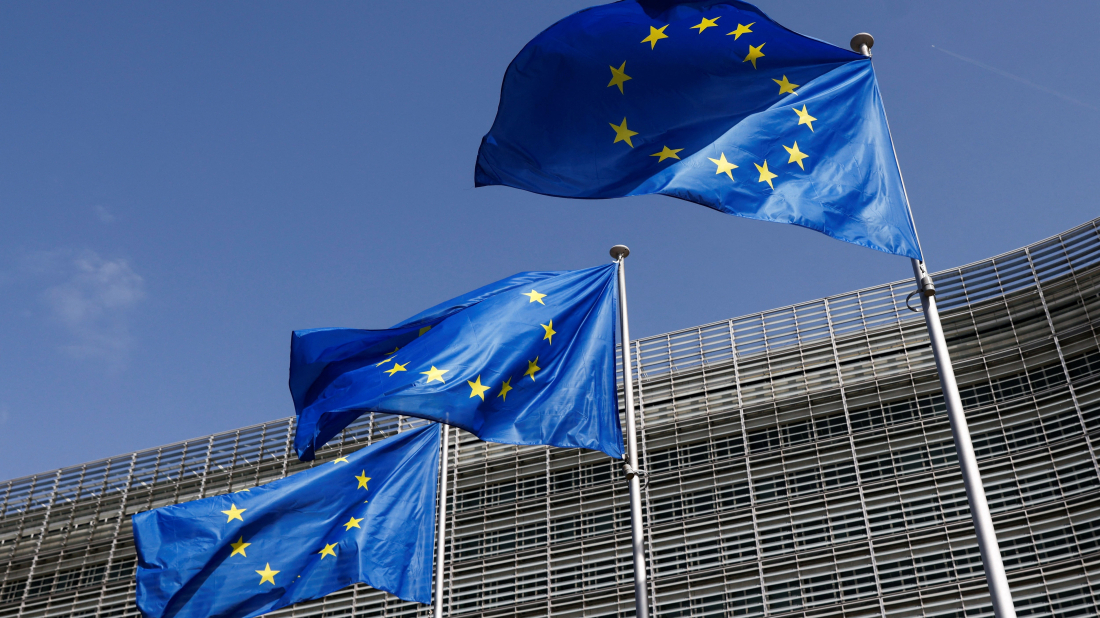Russian intelligence accuses UK, France of plotting to arm Ukraine with nuclear weapons
The Foreign Intelligence Serrvixe of the Russian Federation (SVR) on Tuesday (25 February) accused the United Kingdom and France of actively working t...

The European Union has approved a landmark €150 billion (nearly $170 billion) Defense Industrial Readiness Loan Instrument, known as SAFE, aimed at bolstering the bloc’s defense sector in the face of rising geopolitical threats.
The announcement was made by Ukrainian Prime Minister Denys Shmyhal, who hailed the initiative as both "important and urgent" for the security of Europe and Ukraine alike. Writing on X, Shmyhal emphasized that the agreement will grant Ukrainian defense companies access to EU supply chains and joint procurement efforts, strengthening Kyiv’s defense capabilities while contributing to Europe’s collective security.
“We are stronger together,” Shmyhal said, extending his gratitude to European Commission President Ursula von der Leyen, Poland, and other EU partners for their ongoing support.
The SAFE loan instrument is designed to enhance industrial capacity across the EU amid growing defense demands driven by Russia’s continued aggression in Ukraine and broader regional instability. While the European Commission has not yet detailed a formal rollout schedule, the fund is expected to mobilize strategic investments into defense production, innovation, and infrastructure.
By naming Ukraine a partner in this initiative, the EU further reinforces Kyiv’s trajectory toward deeper Euro-Atlantic integration, not only in diplomacy and trade but now in the strategic defense domain. The move also signals Europe’s long-term commitment to Ukraine’s sovereignty and security, as the country remains on the frontlines of a major conflict reshaping European defense posture.
SAFE represents one of the largest collective defense funding efforts in EU history and reflects a broader shift in European policy toward rearmament and industrial resilience in the face of evolving security threats.
Further Iran-U.S. nuclear talks are scheduled in Geneva on Thursday (26 February) as diplomacy resumes over Tehran’s nuclear programme following earlier mediation efforts. But will the talks move Iran-U.S. negotiations closer to a deal, and what should be expected from the meeting?
Iran has signed a secret €500 million arms deal with Russia to rebuild air defences, weakened during last year’s war with Israel, the Financial Times has reported. The agreement, signed in December in Moscow, will see Russia deliver 500 Verba launch units and 2,500 9M336 missiles over three years.
A British national was among at least 19 people killed when a passenger bus plunged off a mountain highway into the Trishuli river in Nepal before dawn on Monday (23 February), authorities said. A New Zealander and a Chinese national were among those injured.
Seven people were killed after gunmen ambushed a police patrol in Kohat, a district in Pakistan’s north-west near the Afghan border, on Tuesday, in an attack that comes amid rising militant violence and heightened tensions between Pakistan and Afghanistan.
Four years after Russia launched its full-scale invasion of Ukraine on 24 February 2022, the war is no longer defined by shock but by scale.
The Foreign Intelligence Serrvixe of the Russian Federation (SVR) on Tuesday (25 February) accused the United Kingdom and France of actively working to provide Ukraine with nuclear weapons.
President Donald Trump delivered the first State of the Union address of his second term to Congress on Wednesday (25 February), declaring that America’s “golden age” had begun and that the country was experiencing a “turnaround for the ages.”
German Chancellor Friedrich Merz is heading to Beijing on for his first official visit as chancellor, aiming to strengthen political and economic dialogue with China before tackling pressing international crises.
Ukrainian President Volodymyr Zelenskyy has suggested that Hungarian Prime Minister Viktor Orbán should block financial support to Russia rather than Ukraine, as Budapest opposes the European Union’s 20th sanctions package against Moscow.
The Secretary-General of the United Nations, António Guterres, has called for an immediate, full and unconditional ceasefire in Ukraine, describing the conflict as “a stain on our collective conscience”.
You can download the AnewZ application from Play Store and the App Store.

What is your opinion on this topic?
Leave the first comment